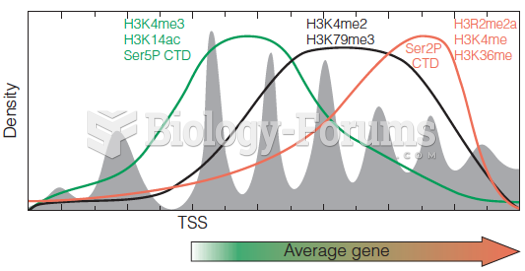|
|
|
Medication errors are three times higher among children and infants than with adults.
The Centers for Disease Control and Prevention has released reports detailing the deaths of infants (younger than 1 year of age) who died after being given cold and cough medications. This underscores the importance of educating parents that children younger than 2 years of age should never be given over-the-counter cold and cough medications without consulting their physicians.
After a vasectomy, it takes about 12 ejaculations to clear out sperm that were already beyond the blocked area.
Drying your hands with a paper towel will reduce the bacterial count on your hands by 45–60%.
The Romans did not use numerals to indicate fractions but instead used words to indicate parts of a whole.







